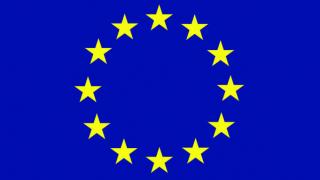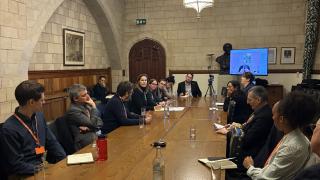
UNA-UK was founded in 1945 to promote global co-operation through the United Nations in support of peace, development and human rights for all. Our starting point for realising this vision is the UK and, as such, our nationwide network of members and supporters is keenly interested in the forthcoming EU referendum and its impact on the UK's global role.
We therefore invited the official "leave" and "remain" campaigns to set out their views on how the referendum could affect the UK's role on the world stage, including its relationship with the UN. The statements received from the two official campaigns have been published on the UNA-UK website in the order they were received:
- Click here to read the statement from the remain campaign
- Click here to read the statement from the leave campaign
We will also be encouraging our network to take part in the vote and to engage with the substance of the debate in the run-up to the referendum.
Why is UNA-UK getting involved in the EU referendum?
Many of our members and supporters feel that, to date, the debate surrounding the referendum has been narrow, with disproportionate attention being paid to issues such as immigration. How the UK’s interface with the EU might affect our standing on the world stage is an important factor which must be fully interrogated to enable the public to make an informed choice.
All British citizens benefit greatly from our rules-based international system, from laws that protect our rights and environment, from effective institutions that deal with conflict, disasters and humanitarian crises, and from collective international solutions to global problems. Our supporters know that what happens in other countries matters to their own lives and they believe that, whether in or out of the EU, the UK can and should play an active and progressive role on the world stage.
To these ends, UNA-UK posed the following three questions to both the official leave and remain campaigns:
- How will the outcome of the EU referendum affect the UK’s role on the world stage, including its relationships within other multilateral institutions such as the United Nations?
- How will the outcome of the EU referendum support a strong multilateral role for the UK in terms of the international agendas on peace and security, development and human rights?
- How do you see the UK’s relationship with the United Nations changing as a result of the referendum?
Please take a moment to read the replies from the leave and from the remain campaigns.
We hope this initiative will help to broaden the conversation on how the referendum will affect UK national interests and UK citizens, and will improve the national debate on Britain’s role in the 21st century.






